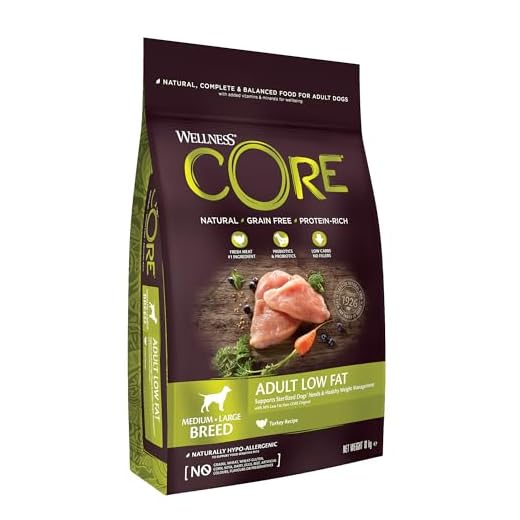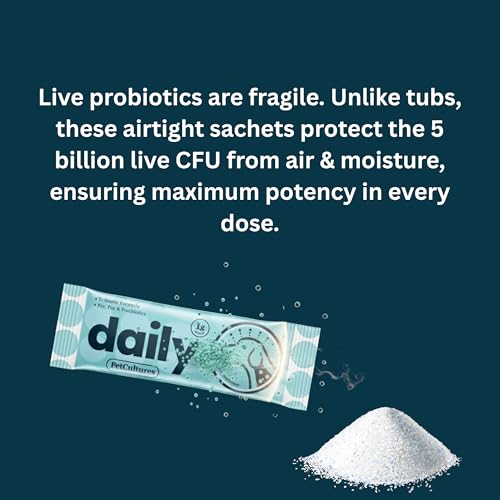




As a dedicated dog owner, I understand the frustration and concern that comes with managing your pet’s health issues. One particularly stubborn problem can be a yeast infection in your dog’s ears. If your furry friend has been scratching excessively, shaking their head, or you’ve noticed an unpleasant odour, you might be dealing with this common but bothersome condition.
When my own dog was diagnosed with a yeast infection in her ears, I knew I had to find an effective solution. While medications and topical treatments play a crucial role, I discovered that diet can significantly impact the management and prevention of yeast infections. The right food can help bolster your dog’s immune system, reduce inflammation, and create an environment less conducive to yeast overgrowth.
In this article, I’ll share what I’ve learned through research and personal experience about the best foods for dogs suffering from yeast infections in their ears. From grain-free options to anti-inflammatory ingredients, I will guide you through dietary choices that can help alleviate your dog’s discomfort and support their overall health. If you’re committed to giving your dog the best chance at a yeast-free life, read on to discover how diet can make a difference.
Understanding Yeast Infections in Dogs’ Ears
As a pet owner, one of the most distressing things to witness is your dog suffering from discomfort, especially when it involves their ears. Yeast infections in dogs’ ears are a common issue, characterised by symptoms such as itching, redness, and a distinct odour. These infections are caused by an overgrowth of yeast, typically of the species Malassezia, which naturally resides in small numbers on a dog’s skin and ears.
Yeast thrives in warm, moist environments, making a dog’s ear canal an ideal place for it to multiply if conditions allow. This overgrowth can be triggered by various factors, including allergies, hormonal imbalances, and a compromised immune system. It’s essential to identify the underlying cause to effectively manage and prevent recurrent infections.
Recognising the Symptoms and Causes
Recognising the symptoms of a yeast infection in your dog’s ears is crucial for early intervention. Common signs include:
- Persistent scratching: Your dog may constantly scratch or rub their ears, indicating discomfort.
- Redness and swelling: The inside of the ear may appear inflamed and swollen.
- Odour: Yeast infections often produce a strong, unpleasant smell.
- Discharge: A dark, waxy discharge may be present.
Several factors can contribute to yeast overgrowth in the ears. Allergies, both food and environmental, are a primary cause, leading to inflammation and changes in the ear environment. Hormonal disorders like hypothyroidism can also predispose dogs to these infections. Additionally, moisture from swimming or bathing can create an ideal breeding ground for yeast.
Understanding the specific cause of your dog’s ear infection is essential for effective treatment. Consulting with a veterinarian can help determine the root cause and develop a tailored treatment plan that may include dietary changes, medications, and hygiene practices.
Symptoms of Yeast Infections in Dogs
As a dog owner, noticing unusual behaviour or changes in your pet’s condition can be concerning. One common issue that dogs face is yeast infections, particularly in their ears. These infections can cause a range of symptoms that affect your dog’s comfort and overall well-being.
Understanding the signs of a yeast infection in your dog’s ears is crucial for early intervention and treatment. By recognising these symptoms, you can take the necessary steps to alleviate your pet’s discomfort and prevent further complications.
Recognising the Signs of a Yeast Infection
When a dog has a yeast infection in their ears, several tell-tale signs can indicate the problem:
- Constant Scratching: If your dog is persistently scratching at their ears, it may be a sign of irritation caused by a yeast infection.
- Head Shaking: Frequent shaking of the head can indicate that your dog is trying to relieve discomfort or remove excess moisture from their ears.
- Redness and Swelling: Infected ears often appear red and swollen due to inflammation. This can be visibly noticeable inside the ear flap or around the ear canal.
- Foul Odour: Yeast infections typically produce a distinct, unpleasant smell. If you notice a strong odour coming from your dog’s ears, it might be due to a yeast overgrowth.
- Discharge: Look for any unusual discharge from the ears, which can be yellow, brown, or even black in colour. This discharge is often a sign of infection.
In addition to these primary symptoms, your dog might also exhibit general signs of discomfort or behavioural changes. They may become more irritable, less active, or show signs of distress when their ears are touched. It’s important to monitor these symptoms and consult with a veterinarian for a proper diagnosis and treatment plan.
How Diet Can Affect Yeast Infections
As a pet owner, I’ve come to realise just how much diet can influence the health of my dog, especially when dealing with yeast infections in their ears. When my dog first developed this issue, I was surprised to learn that what she eats could be a major factor in the recurrence and severity of the infection. This led me to delve deeper into how diet plays a critical role in managing and preventing these infections.
Yeast infections in dogs are often exacerbated by their diet. Certain ingredients can either feed the yeast or help control it, making dietary adjustments a pivotal part of treatment. For instance, foods high in sugars and carbs can contribute to yeast overgrowth, as these elements can create an environment where yeast thrives. By reducing or eliminating such ingredients, it’s possible to create a less hospitable environment for yeast.
Essential Dietary Changes
One of the first changes I made was switching to a grain-free diet. Grains can be a significant source of carbohydrates, which break down into sugars and can fuel yeast growth. Instead, I opted for foods rich in proteins and healthy fats, which not only provide better nutrition but also help maintain a balanced microbiome in my dog’s ears.
Another crucial aspect was the inclusion of probiotics in her diet. Probiotics are beneficial bacteria that can help keep yeast levels in check. By introducing these good bacteria, the balance of microorganisms in the gut and ears can be restored, making it harder for yeast to overgrow. I started giving my dog probiotic supplements and foods naturally high in probiotics, like certain yoghurts and fermented vegetables.
Moreover, I paid attention to the types of proteins in her food. Some dogs may have sensitivities to common protein sources like chicken or beef, which can cause inflammation and contribute to yeast infections. Switching to novel proteins like duck or fish helped in reducing these sensitivities and subsequent flare-ups.
Lastly, I made sure her diet included anti-inflammatory ingredients. Foods rich in omega-3 fatty acids, such as fish oil, have anti-inflammatory properties that can help reduce the inflammation caused by yeast infections. Including these in her daily meals made a noticeable difference in her overall ear health.
In conclusion, carefully selecting and adjusting my dog’s diet has been instrumental in managing her yeast infections. By focusing on grain-free foods, incorporating probiotics, choosing the right proteins, and adding anti-inflammatory ingredients, I’ve been able to help her maintain healthier ears and a better quality of life.
Best Ingredients for Dog Food to Combat Yeast Infections
As a devoted pet owner, ensuring my dog stays healthy and happy is a top priority. When my furry friend developed a yeast infection in his ears, I quickly realised that his diet played a crucial role in managing and preventing these infections. Choosing the right ingredients in dog food can make a significant difference in controlling yeast overgrowth.
Understanding which components to look for in dog food helped me navigate the vast options available. It’s essential to select foods that not only meet their nutritional needs but also help create an environment less conducive to yeast proliferation.
Key Ingredients to Include in Your Dog’s Diet
Here are some vital ingredients that I found beneficial for dogs dealing with yeast infections:
- Lean Proteins: Proteins are a fundamental part of a dog’s diet, but it’s essential to choose lean sources like chicken, turkey, or fish. These proteins provide the necessary nutrients without excessive fat, which can contribute to yeast growth.
- Complex Carbohydrates: Opt for carbohydrates like sweet potatoes, peas, and lentils. These sources are less likely to spike blood sugar levels compared to grains, helping to maintain a balanced gut flora.
- Healthy Fats: Include omega-3 and omega-6 fatty acids found in fish oil or flaxseed. These fats support a robust immune system and have anti-inflammatory properties, which are beneficial for skin and ear health.
- Probiotics: Foods rich in probiotics, such as certain types of yoghurt or specially formulated dog foods, help promote a healthy gut microbiome, which is crucial in combating yeast overgrowth.
- Antioxidants: Ingredients like blueberries, spinach, and pumpkin are packed with antioxidants that support overall health and can reduce inflammation, making them excellent additions to a dog’s diet.
Incorporating these ingredients into your dog’s diet can help manage and prevent yeast infections in their ears. Each component plays a role in creating a balanced diet that supports a healthy immune system and maintains a favourable environment within your dog’s body, reducing the likelihood of yeast issues.
By paying close attention to the ingredients in dog food, you can make informed choices that contribute to your pet’s long-term health and well-being. This approach not only helps in managing yeast infections but also promotes overall vitality and happiness in your furry companion.
Optimal Commercial Dog Foods for Combating Yeast Infections
As a dedicated dog owner, I’ve come to understand the importance of diet in managing my pet’s health, especially when dealing with yeast infections in their ears. Choosing the right commercial dog food can make a significant difference in alleviating this condition. Through research and personal experience, I’ve identified several key factors that are crucial in selecting the best food for dogs prone to yeast infections.
Yeast thrives on certain ingredients commonly found in dog foods, such as high amounts of carbohydrates and sugars. Therefore, it’s essential to select dog foods that limit these components and focus on high-quality, easily digestible proteins and fats. Additionally, avoiding artificial additives and preservatives can help reduce the risk of flare-ups.
Recommended Commercial Dog Foods
-
Grain-Free Formulas: Many dogs with yeast issues benefit from grain-free diets. Ingredients like sweet potatoes or peas can provide necessary carbohydrates without feeding yeast. Look for brands that prioritise meat and vegetables over grains and fillers.
-
Single Protein Sources: Limiting the protein source to one type can help identify potential allergens that may exacerbate yeast infections. Foods with novel proteins such as venison, duck, or fish can be particularly beneficial.
Trending NowLow Fat Turkey Dog Food for Weight ManagementIdeal for maintaining healthy body weightWellness CORE’s low-fat formula features fresh turkey as the main ingredient, providing a protein-rich, grain-free diet that supports weight management and overall health. -
Low Carbohydrate Content: Carbohydrates convert to sugar, which feeds yeast. Choosing a diet that is lower in carbohydrates helps starve the yeast, reducing infection frequency. Brands that focus on higher protein and fat content, with minimal carbs, are ideal.
-
No Artificial Additives: Foods free from artificial colours, flavours, and preservatives are better for overall health and can help in reducing yeast infection symptoms. Natural preservatives and whole food ingredients are a better choice.
In my quest to find the best commercial dog food for my dog’s yeast infection, I also considered the inclusion of beneficial supplements. Foods that include probiotics, omega-3 fatty acids, and digestive enzymes can support gut health and boost the immune system, further helping to combat yeast overgrowth.
Overall, the best commercial dog food for managing yeast infections is one that is grain-free, low in carbohydrates, free from artificial additives, and features a single, high-quality protein source. These criteria help create an environment that is less conducive to yeast growth, ensuring my dog stays healthy and happy.
Homemade Dog Food Recipes for Yeast Infections
As a dog owner, I’ve faced the challenge of dealing with my dog’s yeast infections, particularly in the ears. These infections can cause significant discomfort, leading to scratching, redness, and a foul odour. After researching and consulting with my veterinarian, I discovered that diet plays a crucial role in managing yeast infections. Preparing homemade meals with the right ingredients can significantly improve my dog’s condition.
It’s essential to avoid ingredients that can exacerbate yeast growth. This means steering clear of high-carb foods, grains, and sugars, which can fuel the infection. Instead, focus on nutrient-dense, low-carb ingredients that support overall health and help maintain a balanced gut flora. Here are some homemade dog food recipes that have worked well for my dog.
Recipe Ideas for Dogs with Yeast Infections
1. Turkey and Vegetable Medley
- Ingredients:
- 500g ground turkey
- 1 cup chopped spinach
- 1/2 cup chopped broccoli
- 1/2 cup chopped zucchini
- 1 tablespoon coconut oil
- Instructions:
- In a large pan, cook the ground turkey until fully browned.
- Add the chopped spinach, broccoli, and zucchini to the pan.
- Cook the vegetables until tender.
- Stir in the coconut oil and mix thoroughly.
- Allow the mixture to cool before serving it to your dog.
2. Salmon and Sweet Potato Delight
- Ingredients:
- 2 salmon fillets (boneless and skinless)
- 1 medium sweet potato, peeled and cubed
- 1/2 cup green beans, chopped
- 1 tablespoon olive oil
- Instructions:
- Bake the salmon fillets at 180°C for 20 minutes or until fully cooked.
- Steam the sweet potato cubes and green beans until tender.
- Flake the salmon and mix it with the sweet potato and green beans.
- Drizzle the olive oil over the mixture and stir to combine.
- Allow to cool before serving.
3. Beef and Pumpkin Stew
- Ingredients:
- 500g ground beef
- 1 cup pumpkin puree (unsweetened)
- 1/2 cup diced carrots
- 1/2 cup peas
- 1 tablespoon flaxseed oil
- Instructions:
- Cook the ground beef in a large pot until fully browned.
- Add the diced carrots and peas, cooking until they are soft.
- Stir in the pumpkin puree and mix well.
- Remove from heat and add the flaxseed oil, stirring to combine.
- Let the stew cool to room temperature before feeding it to your dog.
These recipes provide a balanced diet that avoids common triggers for yeast infections, focusing on high-quality proteins and low-glycemic vegetables. By feeding your dog these homemade meals, you can help manage their yeast infections more effectively and ensure they enjoy a happier, healthier life.
Additional Tips for Managing Yeast Infections in Dogs
A yeast infection in your dog’s ears can be persistent, but with consistent care and attention, you can help manage and reduce the likelihood of recurrence. Here are some additional tips to complement dietary changes and veterinary treatment:
- Regular Cleaning: Clean your dog’s ears regularly with a veterinarian-approved ear cleaner. This helps remove excess wax and debris, creating an environment less conducive to yeast growth.
- Avoid Moisture Build-up: Keep your dog’s ears dry after baths or swimming. Moisture can exacerbate yeast infections, so gently drying the ears can help prevent recurrence.
- Dietary Supplements: Consider adding probiotics to your dog’s diet. Probiotics can help maintain a healthy balance of bacteria in the gut, which may indirectly support ear health.
- Environmental Control: Reduce exposure to potential allergens and irritants in your dog’s environment, as these can contribute to yeast overgrowth. Regular cleaning of bedding and living areas can also help.
- Consult Your Veterinarian: Always consult your veterinarian if you suspect a yeast infection or if your dog’s symptoms persist. They can provide tailored advice and may recommend additional treatments or tests.
By combining proper diet, veterinary care, and these additional tips, you can help alleviate discomfort for your dog and prevent future yeast infections in their ears.
Best Food For Dog With Yeast Infection In Ears
Features
| Part Number | 12274093 |
| Model | TP-7613035152908_Vendor |
| Release Date | 2015-08-24T00:00:01Z |
| Size | 11 kg (Pack of 1) |
| Language | Spanish |
| Price history for Hypoallergenic Dry Dog Food for Allergies | |
|---|---|
|
Latest updates:
|
|
Features
| Part Number | 0000 |
| Model | 0000 |
| Warranty | 45 Day Money Back |
| Size | Single Pack |
| Price history for Probiotic Digestive Treats for Dogs | |
|---|---|
|
Latest updates:
|
|
Features
| Part Number | MX-001 |
| Model | SEPRO-001 |
| Warranty | 90 days |
| Color | Light Blue |
| Language | English |
Features
| Part Number | HARRGFSS-12 |
| Model | HARRGFSS-12 |
| Release Date | 2024-01-01T00:00:01Z |
| Size | 12 kg (Pack of 1) |
| Price history for Grain Free Salmon Dog Food | |
|---|---|
|
Latest updates:
|
|
Features
| Part Number | YUDI300 |
| Model | YUDI300 |
| Warranty | 0 |
| Color | Whtie |
| Release Date | 2012-04-30T00:00:01Z |
| Size | 300 Tablets |
| Price history for Digestive Care Probiotic Supplements | |
|---|---|
|
Latest updates:
|
|
Features
| Part Number | 81378272 |
| Model | 81378272 |
| Release Date | 2012-04-23T00:00:01Z |
| Size | 12 kg (Pack of 1) |
| Language | English |
Features
| Part Number | 10754 |
| Model | 10754 |
| Size | 10kg |
| Language | French |
Features
| Part Number | GR00142212 |
| Model | 195511/3854 |
| Color | transparent |
| Release Date | 2015-03-30T00:00:01Z |
| Size | 10 kg (Pack of 1) |
| Language | English |
| Price history for Health & Digestion Dry Dog Food | |
|---|---|
|
Latest updates:
|
|
Video:
What is the best food for a dog with a yeast infection in the ears?
The best food for a dog with a yeast infection in the ears is one that is low in carbohydrates and sugar. Yeast thrives on sugars, so a diet that minimizes these ingredients can help reduce yeast growth. Look for dog foods that are specifically formulated for sensitive skin or allergies, often labelled as grain-free or limited ingredient diets.
Should I avoid certain ingredients in my dog’s food if they have a yeast infection in the ears?
Yes, you should avoid ingredients that can promote yeast growth, such as grains (like wheat and corn), sugars, and starches. Instead, opt for dog foods that contain high-quality proteins like chicken, turkey, or fish, along with healthy fats and a moderate amount of non-starchy vegetables.
Are there any specific nutrients or supplements that can help manage a dog’s yeast infection in the ears through diet?
Adding certain nutrients or supplements can support your dog’s immune system and skin health, which may help manage yeast infections. Look for dog foods that include omega-3 fatty acids (like fish oil) and probiotics, as these can help promote a healthy skin barrier and reduce inflammation. Consult your veterinarian for recommendations tailored to your dog’s specific needs.






















































